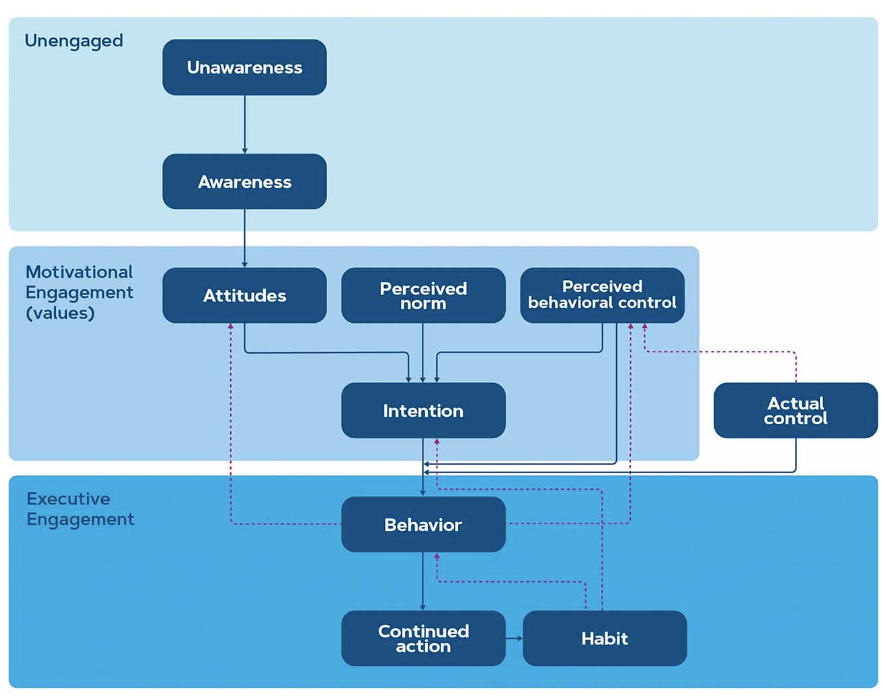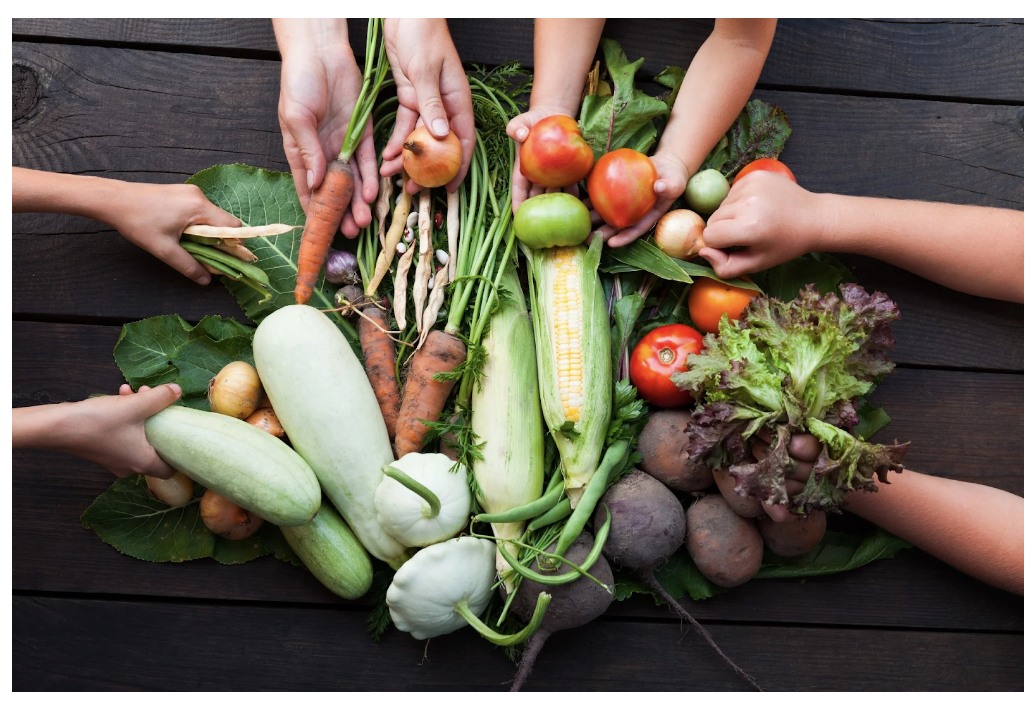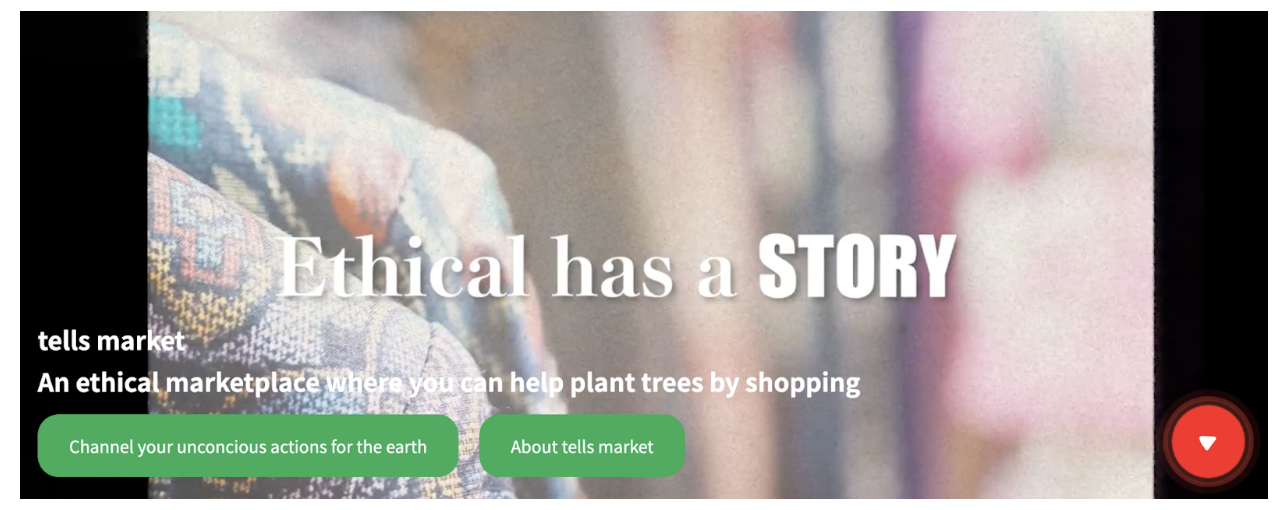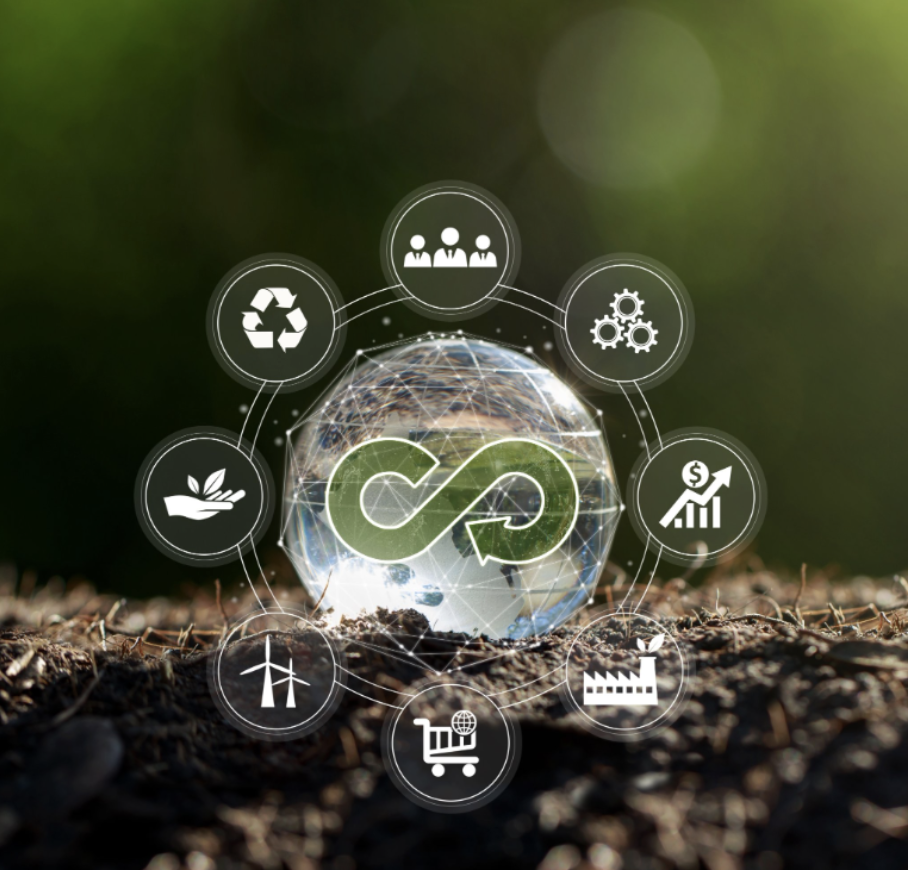Is the shift from consumer to prosumer the ultimate step to sustainability?
This article explores the potential of consumer choices in creating a sustainable ecosystem, with a focus on increasing the number of forests through responsible shopping. It discusses the prospects for global prosperity and emphasizes the pivotal role consumers play in steering society towards a more sustainable path.
在庫切れ
日本国内発送のみ
ショッププロフィール
tells-market®︎

33品
送料(1品ごと): 日本: ¥2このショップでは¥5,000以上のお買い物の際に国内配送料が無料になります。
¥2(税込)
ポイント還元
0 SeC
あとで買う
Transparency Points
透明性項目
tells-market®︎

品物一覧を見る
特定商取引法に基づく表記
Story
品物のストーリー
This article explores the potential of consumer choices in creating a sustainable ecosystem, with a focus on increasing the number of forests through responsible shopping. It discusses the prospects for global prosperity and emphasizes the pivotal role consumers play in steering society towards a more sustainable path.
Learn Stories of Makers
Encouraging consumers to adopt sustainable behaviors is an imperative task in the modern world. With the increasing awareness of sustainability, consumers are making conscious decisions that prioritize environmental concerns. Several techniques and strategies can be employed by businesses to promote sustainable consumption and influence consumer behavior. This article delves into these strategies, incorporating insights from two different articles: one discussing prompts, feedback, and incentives, and the other focusing on consumer attitudes and behaviors towards sustainability.
Leveraging Prompts, Feedback, and Incentives

Prompts, a technique based on behavioral psychology, can effectively encourage consumers to engage in sustainable behaviors. For instance, text messages reminding people to use eco-friendly transportation options or recycle can be highly influential. These prompts work best when they are easy to understand and are received at the right place and time. Studies have shown that merely placing prompts near recycling bins increased recycling rates by a significant margin, demonstrating their efficacy.
Feedback plays a vital role in shaping sustainable habits. It informs individuals about their performance and, in some cases, compares their actions with those of others. For instance, household energy bills that indicate how a consumer's usage compares with their neighbors can motivate energy-saving practices. Real-time feedback, like the information provided by Toyota Prius about gas mileage, can be particularly effective for behaviors that are performed repeatedly.
Incentives are another powerful tool for driving sustainable behavior. Businesses can employ various forms of incentives to encourage consumers. For instance, Coca-Cola partnered with Merlin Entertainments in the UK to offer "reverse vending machines" that provide half-price entry tickets to theme parks in exchange for recycling plastic drink bottles. However, businesses must use incentives with care, as their removal can lead to the cessation of the desired behavior. It's also essential to avoid undermining consumers' intrinsic motivation by carefully balancing external incentives with intrinsic motives.
Major life changes, such as moving to a new neighborhood, starting a new job, or acquiring a new group of friends, can create opportunities for individuals to consciously evaluate and experiment with their routines. Research has shown that after such major life changes, individuals are more likely to engage in environmentally friendly behaviors, signifying the potential for breaking old habits and embracing sustainable practices.
The Domino Effect: Positive Spillover
One significant advantage of encouraging consumers to adopt sustainable habits is the creation of positive spillover effects. People are naturally inclined to be consistent, and when they embrace one sustainable behavior, they tend to make other positive changes as well. IKEA's Live Lagom initiative is an excellent example, demonstrating how small steps, such as reducing food waste, can lead to broader sustainability practices. In this case, consumers progressed from buying LED light bulbs to making significant changes in their home's energy efficiency.
It's important to note that negative spillover can also occur, where an initial ethical action permits less virtuous behavior in the future. This phenomenon, termed "licensing" by researchers, can happen when consumers feel that their initial ethical actions give them permission to act less virtuously. Therefore, businesses need to be cautious in designing their incentives and prompts to mitigate negative spillover effects.
Emotional and Rational Appeals

When communicating with consumers about sustainability, businesses have a choice between emotional appeals and rational arguments, both of which can be effective when applied correctly.
Emotional appeals tend to be more effective, as people are more likely to engage in sustainable behaviors when they experience positive emotions. Hope and pride are particularly useful in driving sustainable consumption. For example, campaigns like Bacardi and Lonely Whale's #thefuturedoesntsuck emphasize hope in their collaboration to eliminate plastic straws. Publicly praising consumers for their energy-efficiency efforts can engender pride, motivating them to save more energy.
Guilt, on the other hand, should be used with caution. While it can be an effective motivator, excessively explicit guilt appeals can lead to negative reactions. Moderate levels of guilt, sadness, or fear are generally more effective in motivating sustainable behavior.
Rational appeals can also be powerful. Communicating the positive impact of sustainable choices, such as reduced energy costs, can influence consumer behavior. However, framing the information correctly is crucial, especially for products with high up-front costs and delayed benefits. Research has shown that information framed in terms of dollars, making future consequences more salient, and appealing to people's aversion to losses can drive sustainable purchases.
Favoring Experiences Over Ownership
In the "experience economy," companies offer experiential options as an alternative to material goods, such as destination honeymoons or gourmet dinners. This shift not only has the potential for sustainability benefits but also enhances emotional connections and memories between consumers.
The sharing economy is another successful approach to promoting sustainability. Companies like Airbnb and Zipcar provide access to existing resources, reducing the environmental footprint associated with manufacturing new products.
Additionally, some companies have found success by offering recycling and refurbishing services for their products. Patagonia and Eileen Fisher encourage customers to buy durable clothing, wear it as long as possible, and return it for refurbishing and resale, contributing to a more sustainable lifecycle for their products.
Consumer Attitudes and Behaviors Toward Sustainability

Consumer attitudes and behaviors regarding sustainability have evolved over the years. Deloitte's research reveals that consumers have increasingly started making conscious choices based on sustainability and environmental considerations. These behavioral changes have been partly influenced by external factors, such as the COVID-19 pandemic and economic instability.
Consumers are now making more deliberate decisions to lead a sustainable lifestyle. This includes focusing on buying only what they need, reducing meat consumption, and choosing low carbon emission transportation options. Economic factors, like inflation and supply chain disruptions, have played a role in these shifts, as consumers seek ways to spend less through sustainable and durable goods.
Recycling and reducing waste, along with product repair, are some of the initial steps consumers take towards adopting a sustainable lifestyle. Purchasing seasonal, local, and second-hand products have also gained popularity.
However, consumers may still face barriers to adopting sustainability. These barriers include cost, lack of information, lack of accessibility to sustainable options, and doubts about the effectiveness of sustainable lifestyles. To overcome these barriers, businesses must work on making sustainable choices more affordable and readily available while providing consumers with clear information on disposal, recycling, and renewing products.
Trust and Transparency

Consumer attitudes and behaviors toward sustainability are increasingly shaped by trust and transparency. In this context, it's worth mentioning the made in Japan e-commerce platform, tells Market, which actively promotes prosumer behavior. tells market offers consumers an opportunity to make sustainable choices, contributing to the overarching goal of shaping more eco-conscious behavior. Through the platform, consumers can not only access sustainable products and services that align with their values, but can also contribute to direct sustainable actions such as reforestation projects, and more.
In summary, shaping positive habits and consumer behavior for sustainability involves a combination of strategies, including prompts, feedback, incentives, and emotional and rational appeals. The adoption of sustainable habits can lead to positive spillover effects, but businesses must be wary of potential negative spillovers. Promoting experiences over ownership and exploring the sharing economy can further encourage sustainability. Understanding consumer attitudes and behaviors is essential, and businesses should work to reduce barriers to adopting sustainable lifestyles. Trust and transparency are key factors in building consumer confidence in business commitments to sustainability.
As businesses strive to drive sustainability in consumer behavior, a deeper understanding of human psychology, attitudes, and motivations is crucial. With the right strategies, sustainable business can indeed become smart business in the coming years.
Visit tells market for more
